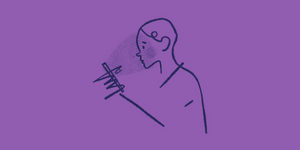Pandemic aftershocks. The fiction of individual transformation.
As we close the year, we’re reflecting on the insights that bubbled up across the studies we’ve done and we’ve found a set of insights that have surprised us as they run counter to mainstream narratives about life post-pandemic. We’ve assembled an archive of hundreds of stories about how deflated and unmoored people feel in the wake of the pandemic. The stories people share with us are less and less about the collective trauma of the pandemic. More and more, they’re about the disappointment and malaise many people are feeling after having made dramatic changes in search of greater meaning. These urges were catalyzed by an inventory of the unsatisfying and stifling aspects of their lives, but people are let down. They feel a hollowness that, for many, is deeper than the hollowness they felt before they overhauled their lives. What’s this all about? What’s going on?
One respondent told us:
“My job was slowly killing me. When I got into it I thought I’d be able to make a difference. I was helping to make policy in child welfare. But the system was so frustrating. It was impossible to make any real change. So I left to work more directly with kids in the foster care system. At first, it was exciting and felt meaningful. I got to connect with real kids. But pretty soon I found that there were the same problems with the system and ultimately there wasn’t a whole lot we had the power to change. Now I feel stuck and disheartened…maybe even more than before. I don’t know. It sucks.”
Other people, too, talked to us about having quit unfulfilling jobs that they realized were slowly killing their spirits with boredom and lack of meaning and pursuing instead the passions they had kept tucked tightly away. Some left cities to pursue simpler lives, connected to nature and seasonal rhythms. Some talked about having children, after spending their lives not wanting them, as a life-affirming choice in the face of mass death. Some people ended relationships that had long been dead or toxic when the intensity of being home during the pandemic made staying with that person even another day unbearable. So many lives during and following the pandemic have been characterized by a profound rethinking of what living – truly living – means today.
The shared experience of the collective trauma of the pandemic felt like a tipping point – a chance – through shared catastrophic grief and loss – for both our lives and global systems to change. It was an opportunity to rethink the very fundamental structures that shape life today, how we fit into them, and how we’re made vulnerable by the violence and inhumanity of it all. From a man in the Midwest, we heard,
“I guess the pandemic really made me rethink my life. When I was honest with myself, I wasn’t happy. It felt like things could be better…a lot better. I wanted closer relationships. I wanted work that made me feel like I was doing something good. There has to be more to life than what I’m seeing.”
For many, the trauma of the pandemic jolted us into an existential crisis. What am I doing with my life? What’s missing that would make life more meaningful? What kinds of daily indignities, boredom, dissatisfaction, and quiet suffering am I accepting, thinking it’s normal – just the way things are? Where can I find love and connection that ignites the passion and desires I’ve suppressed?
Humans have always searched for the underlying meaning in life, but there was something deeper triggered by the pandemic on a broader scale – an intense urgency, a realization that life is much more precarious than we may think and that we have limited time to make it count. The pandemic, even in its debilitating collective trauma, was a moment of possibility that not only individuals but also society could be catapulted into a life where social, political, and economic structures support our flourishing.
But despite – maybe because of – the profound changes to our lives, we’re witnessing what might be understood as a collective letdown. People realize that the changes they’ve made aren’t, perhaps, as fulfilling and transformative as these choices promised. They understand, painfully, that at a fundamental level, the society we live in won’t allow for the deeper, meaningful changes we’re hungry for. From another respondent’s perspective:
“I thought I’d made big changes. I mean I did make big changes. But then I realized I still had to show up to a job to make ends meet. I still had a hard time with my family. A lot of those same problems were still there. They just looked a little different. It just feels like something much bigger has to change but I don’t know what. It’s hard.”
In the aftershock of the pandemic, we’re stuck – maybe even more so than before, because before, there was the illusion of the possibility of uprooting and overhauling our lives that made us feel alienated from ourselves. The roots of this “stuck-ness” might be in the fact that, despite the powerful awareness of our collective vulnerability and interconnectedness that came to the fore in the pandemic, we defaulted back to what feels like a natural state of individualism. Individual life changes continued to be the scale at which people imagine worlds otherwise, ignoring the collective in these attempts at transforming what it means to live a life of flourishing and meaning.
As we try to understand what’s happening in this global moment, we’re hearing with increasing frequency that everyday people are aware that it’s the structures we live in that are broken, soul-crushing, and at complete odds with our possibility to thrive. People tell us that we need bolder change beyond what’s possible in our individual lives. They want social, political, and economic systems rooted in empathy and humanity, not in alienation. How to approach this is an infinitely more difficult question than “What can I do as an individual to give my life meaning?” It’s in the fiction of individual transformation that these more fundamental possibilities are foreclosed. In reckoning with their disappointment, doubt, and hopelessness, people are coming to understand that we collectively uphold the systems that trap us, and the only way for us all to truly live is to collectively refashion them anew.
“I think one of the good things that came out of COVID was that I feel closer to people, you know? I mean I definitely feel lonely a lot too. Especially after having to stay home for so long with COVID. But I do feel like I have things in common with people that I didn’t necessarily feel before. That feels a little hopeful, you know? Like other things are possible, you know?”
How do we follow this hope? We think the first step is tapping into our collective imagination of a world otherwise. The good news is that humans are masters of creativity when allowed to let their imaginations run wild – when they’re asked to dream bigger than the constraints or particularities of their own lives. Inviting each other into this state of imagination can form an archive of people’s wildest dreams, their hopes and fears, and their untapped awareness of how they’re fundamentally connected with others. The question for all of us is: How do we take this patchwork of brilliant imaginaries and knit them together into a tapestry of a radically different collective future?
What seemingly unwieldy dreams, passions, and worlds can you imagine?



